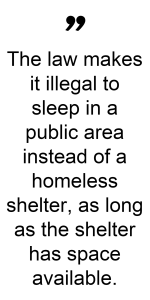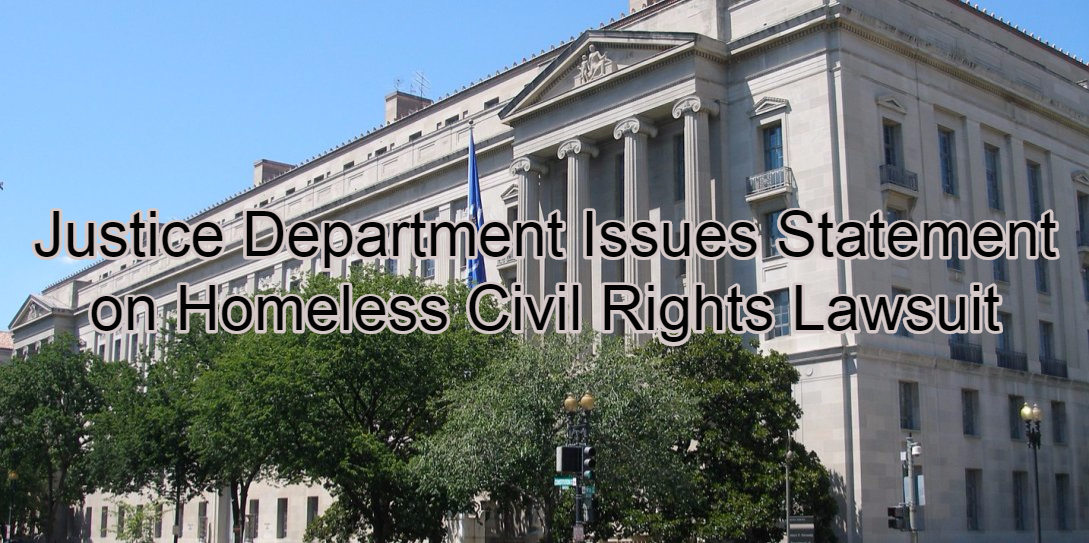 On Aug. 6, 2015, the Department of Justice Civil Rights Division issued a statement on the civil rights lawsuit filed in 2009 by several homeless people in Boise. The department is asking a federal judge to block a city law on sleeping in public from being enforced. The law makes it illegal to sleep in a public area instead of a homeless shelter, as long as the shelter has space available.
On Aug. 6, 2015, the Department of Justice Civil Rights Division issued a statement on the civil rights lawsuit filed in 2009 by several homeless people in Boise. The department is asking a federal judge to block a city law on sleeping in public from being enforced. The law makes it illegal to sleep in a public area instead of a homeless shelter, as long as the shelter has space available.
The department criticized the law for unfairly punishing the homeless for not having a place to stay. Those in favor of the law argue that there is usually enough room in the shelters to accommodate Boise’s homeless population, making it unnecessary for them to sleep in public places. They also point out that the City Council voted in 2014 to amend the law so that homeless people will not be ticketed for sleeping in public when the shelters are full. For those who support enforcing the law, public safety is cited as the main issue.
Those who oppose the law argue that the city’s homeless population is larger than the amount of space available overall in Boise’s homeless shelters. Attorney Howard Belodoff, who represents the plaintiffs involved in the 2009 civil rights lawsuit, also stated that many of Boise’s homeless people have disabilities that prevent them from being able to stay in shelters.
Seven homeless people filed the lawsuit in question, Bell v. City of Boise, after being convicted for breaking the law by sleeping in public. At the time, the law allowed police to ticket homeless people regardless of whether or not there was enough space in homeless shelters. The 2014 amendment to the law prohibits police from ticketing the homeless if there is no space available in shelters.
The Department of Justice’s statement claims that the Boise law is in violation of the Eighth Amendment since it criminalizes an activity that is necessary and unavoidable. The department argues that the homeless should not be punished by the law for sleeping, regardless of where that activity occurs. A U.S. District Court judge is expected to issue an official ruling on the lawsuit in late 2015 or early 2016.


